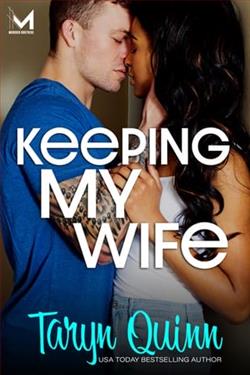Page 9 of Killing Mind
HMP Hewell was located in Tardebigge in Worcestershire. Holding approximately fourteen hundred mixed category prisoners it served the areas of Worcestershire, Warwickshire and West Midlands. The prison had its fair share of overcrowding, and drug problems, which had been highlighted when a chance wildlife documentary being filmed in adjacent fields caught the smuggling process in action.
It had also been home to Peter Drake for the last twenty-six years.
Bryant turned off the engine and sat back. Had he still been a smoker, a lit cigarette would already have been in his hand. Ten minutes to spare, anxiety clutching at his stomach, hell, he’d probably have chain-smoked a couple by now.
His palm began tapping on the steering wheel for want of something better to do as he glanced around the car park waiting for the vehicle he was expecting.
He’d first met Richard Harrison when he’d attended Wendy’s funeral, standing unnoticed at the back. Only he hadn’t been unnoticed. Richard had approached him as he’d been getting back into his car and asked why he was attending his daughter’s funeral.
Bryant had explained his role to the broken man who had just buried his child. At the trial, he had read out his statement and had watched the man fight back the tears. Once he’d done as much as he could, he’d had to let it go. The murderer was safely behind bars serving a forty-five-year sentence. He’d gone on with his life, hoping Wendy could now rest in peace.
Until ten years ago when Richard Harrison had been waiting for him outside Sedgley police station at the end of his shift.
Bryant had not recognised him immediately. He appeared to be half the man he’d been before in both stature and girth. His hair much greyer than he recalled.
Over coffee Richard had explained that Wendy’s killer, Peter Drake, had applied for parole having served fifteen years of his sentence. He had also confided that his marriage had broken down and ended in divorce. Throughout their conversation Bryant had gathered that the main cause of the breakdown had been due to Richard being unable to move on and function after the death of his only child. He had lost contact with friends and eventually lost his job due to poor performance. His house and wife hadn’t been too far behind.
Bryant had understood the man. He knew that people had to allow themselves to heal at their own pace, find a new way to move on, but had his own daughter been subjected to the same ordeal as Wendy, he wasn’t sure he would ever have been able to recover either; both of them, Richard and Bryant, father to only one child. One daughter.
‘She was a Daddy’s girl,’ Richard had explained. Whatever happened she had run to Daddy. Needed a plaster, a bedtime story, Daddy made everything better.
‘But Daddy couldn’t do it this time,’ Richard had whispered into his drink, which had all but broke Bryant’s heart.
He knew that other parents had opportunities to make good mistakes they felt they’d made. People with more than one child had the chance to make it up somehow to a sibling; do things differently second time around. Richard would never be able to make it up to Wendy. He felt he had failed her and he would never forgive himself.
To help the man out Bryant had made a couple of calls to the prison and a friend he had on the parole board and established that Peter Drake wasn’t going anywhere. Poor behaviour and violent episodes towards prison officers had ruled out such an early release.
That had changed five years ago when the man had supposedly found God. In the years since he’d kept his nose clean and firmly out of trouble.
And now every parole hearing carried more risk than Bryant was comfortable with.
Two years ago, Richard had asked him to attend the parole hearing with him. As Wendy’s next of kin, he was allowed to attend and take one support person.
In the past Bryant had always trusted the parole board. As an independent body, it was made up of 246 members and 120 support staff who carried out risk assessments on each individual to determine whether they could be safely released back into the community.
He knew that public safety was the number one priority and that they heard around twenty-five thousand cases a year referred by the Ministry of Justice. The risk assessments were based on detailed evidence contained in a dossier together with evidence provided at an oral hearing. Members were drawn from a wide circle of professions and appointed by the Secretary of State for Justice.
Statistics told him that in the years 2018 to 2019 only 1.1 per cent of offenders released had gone on to commit further serious offences. A small percentage but a percentage nonetheless, which showed Bryant one thing: the parole board made mistakes.
As Richard Harrison’s car pulled onto the car park. Bryant prayed that Peter Drake wasn’t going to be one of them.
Nine
Myles helped his wife back into the car and had no clue how they’d made it back to the car park.
The moment she had seen their daughter lying on that bed in the mortuary viewing room, something in her face had closed down. She hadn’t cried, she hadn’t sobbed. In fact, she had not made a single sound since.
At one point his hand had itched to yank away the white sheet that was pulled right up to his daughter’s chin to stop it stifling her. Sammy had always hated anything tight around her neck. He had to remind himself that she could no longer feel anything, and he now knew what they were trying to hide. He had no wish to see the wound his daughter had inflicted on herself.
‘Sweetheart, I just need the toilet,’ he said, leaning down and speaking into the car.
His wife offered just a slight nod of acknowledgment but continued to stare forward.
He closed the car door gently and headed back towards the main building.
There was something in him that felt he could walk out the deadened feeling in his stomach, though he knew it would be with him for a very long time.
He was not as shocked as his wife at Samantha’s decision to take her own life. She’d been through a lot and yes, he had felt she was strong enough to try living on her own. He would carry that mistake for the rest of his days, but at the same time a small voice spoke inside him. If she was so determined to end her life, would location have made any difference? When they’d had her at home she had not been under house arrest or 24-hour guard. She would have been able to find a way.















